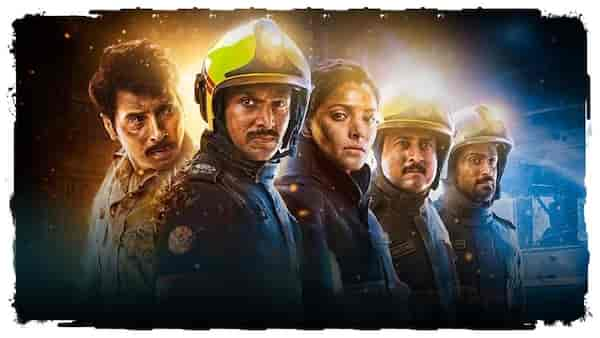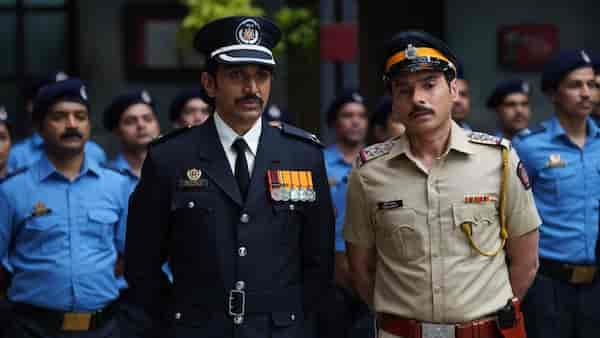Agni: Pratik Gandhi-Starrer's Potential Goes Up In Flames
This is #CriticalMargin, where Ishita Sengupta gets contemplative over new Hindi films and shows

Last Updated: 08.03 PM, Dec 07, 2024
RAHUL DHOLAKIA’s Agni is the reason Hindi films get a bad reputation. It is also the reason why some films are remembered for failing the actors and certain filmmakers are accused of giving in to mainstream pressure with their tendency to trade ingenuity for accessibility. If Agni was a person, it would have lived up to its name and walked right into fire, for nothing explains the sheet travesty it commits by segueing into the most non committal twist in recent times and upending in the process, a perfectly functional film.
The setting is ingeniously appealing. Agni centers around firefighters, the group of first responders who have been routinely underwritten and underrepresented in popular culture in a bid to prioritise another section of respondents: police officers. Dholakia’s outing is attuned to this stilted rendition. In the film, the chief of the fire department, Vitthalrao Dhonduba Surve (Pratik Gandhi) is pitted against a super cop and his brother-in-law, Samit Sawant (Divyendu Sharma). There are also unending conversations about the profession being unacknowledged by others even when it possibly involves a riskier proposition.
This also comprises the crux of Agni’s problem. Instead of outlining the profession in question and crafting a story around it, the film is too busy stirring up a combative discourse, and makes the neglect that the firefighters are subjected to both the plot and the twist. It is a ridiculous swerve that reduces Agni to a lesser film and also reveals the underconfidence of the makers regarding their subject.
The year is 2017. Old buildings in Mumbai are going up in flames and people are dying. Upon inspection, ghastly transgressions of protocols are revealed. Vitthalrao and his team are hard at work. But there is little care on display. Nobody — from the traffic police on the road to the officers’ family members — is able to grasp the importance of their task.

Dholakia clutches onto this and designs everything around the persecution complex. When Vitthalrao is on the road, the traffic police taunts him. When he is at home, his son refuses to come close. The doltish kid is too enamoured by his uncle to appreciate his father’s bravery. The problem here is that Agni never gives sufficient reasons for anyone to like Samit Sawant’s character except that it is played by Divyendu Sharma, an actor capable of enlivening any scene.
That their spouses (Sai Tamhankar is effective as Vitthalrao’s wife) get along is a nice touch and reveals their rivalry to be the squabbling of two overgrown boys. There is also a lovely scene in a restaurant where the men are assembled to apologise to each other. But the writing never goes deeper. The filmmaker barely scratches the surface. Such resistance for inventiveness also leaks into the way the fire sequences are staged. In Hindi films there are not many such instances and Agni squanders its potential at the altar of cheap thrills.
The last 30 minutes unravel with little logic. Distinguished actors are compelled to behave like they are in a school skit. A lot of fire is on screen but there is little logic to the proceedings. The unfortunate bit here is that Agni didn’t need that crutch as even the little details it upheld about the fire department felt original. It is only Gandhi who emerges from the mess, unscathed. At this point, it feels like there is little that the actor cannot do. He had a terrific year where his turns were disparate from each other and he altered his diction in keeping with the role.
Earlier in Madgaon Express, he essayed a sheltered Gujarati and followed this with Do Aur Do Pyaar where he was a sheltered Bengali. Gandhi plays a Maharashtrian here and the conviction and craft is tremendous. Scenes of him being underappreciated at home are reminiscent of Manoj Bajpayee from The Family Man. But unlike the series, this film is ill-equipped to shoulder its actor.
Disclaimer: The views expressed in this column are those of the author and do not necessarily reflect the official policy or position of OTTplay. The author is solely responsible for any claims arising out of the content of this column.

 Premium
Premium